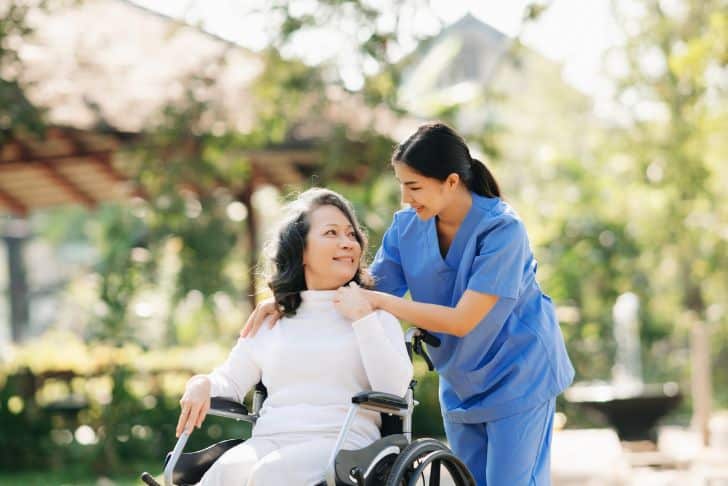In the journey of life, there often comes a point where roles reverse and you find yourself caring for your aging parents. The challenge of this transition not only lies in providing for their practical needs, but also in preserving their dignity and independence. This article delves into the delicate balance of ensuring their safety while respecting their autonomy. We explore how to navigate this tricky terrain, from letting your loved ones take the lead in tasks and asking for help when they need it, to the imperative of respectful intervention when their safety is at risk. We’ll also discuss practical support tools like medication organizers, mobility aids, and medical alert systems. While the journey may be challenging, the ultimate goal is to provide care that respects, dignifies, and maintains the independence of your aging parents as much as possible.
Understanding the Balance between Independence and Safety
As an adult child caring for your aging parents, it can often feel like walking a tightrope. On one hand, you yearn for their safety and wellbeing, on the other, you yearn for them to retain their independence and freedom. This delicate balancing act changes the traditional parent-child relationship. It’s no longer just about obedience and learning, now it implies an added dimension of caregiving and support.
Redefining parent-child relationships in caregiving
At the heart of caregiving is a shift in the parent-child dynamic. You’re no longer just the child – now, you are also-caretaker, nurse, confidante, and sometimes the ‘parent’. Yet, it’s important to remember that despite these changes, the essence of your relationship should not be lost. Your parents are individuals just as you are, deserving of respect, consideration, and most importantly, their independence.
Seniors’ resistance towards help and fear of lost autonomy
A common hurdles you may encounter is resistance. Your parent’s reluctance to accept help stems from a fear of losing their autonomy. This fear can frustrate and even strain relationships. It is important to recognize these fears are valid and develop ways to respect your parent’s boundaries while still delivering necessary care.
The importance of respectful and understanding caregiving
Respectful caregiving takes patience and understanding. You must accept the nature of your new roles without taking away your parent’s autonomy. Encourage independence while ensuring their health and safety. This may not always be easy, but it is essential.
Promoting Independence in Elderly Parents
Independence is crucial when it comes to maintaining the wellbeing of your aging parents. Independence restores their sense of control and aids in preserving their dignity.
Allowing seniors to lead in tasks
Most activities, from cooking to performing light physical exercises, can contribute to your parents’ sense of self-worth. Let them take the lead in these tasks, only stepping in when assistance is requested.
Avoiding automatic takeover of tasks
While it may initially seem quicker and easier to simply carry out a task yourself, this may subvert your parent’s ability to engage in the task themselves. Use these moments as opportunities to promote your parent’s sense of independence and capability.
The role of caregivers in encouraging independence
A caregiver’s role isn’t just about providing medical care. It’s also about emotional support and promoting independence within safe parameters. Encourage them to make decisions about their care and involve them in the planning process.

Ensuring Safety without Intrusion
Safeguarding your parent’s health and safety doesn’t require infringing their privacy. Their personal life should still be respected regardless of their age or health conditions.
Respecting seniors’ privacy
Their space is their sanctuary. Permit them their privacy and space.
Seeking consent before intervening
Before stepping in to intervene, ask for their permission. This preserves their autonomy and signals a respect for their boundaries.
Maintaining dignity in caregiving
Remember, your role as a caregiver doesn’t diminish your parent’s right to dignity. Giving them the respect they deserve maintains their dignity.
Using Assistive Devices to Enhance Independence
Assistive devices can provide a powerful balance between safety and independence, making them a winning solution when it comes to caring for aging parents.
The role of medication organizers
Help them organise their medication in a simple yet effective way. This allows them to take over this aspect of their life.
Benefits of mobility aids
Mobility aids like walkers or canes are not just about making movement easier — they also provide a sense of security and independence.
Setting up medical alert systems
Medical alert systems are an excellent way to ensure safety without constant supervision.

Addressing Resistance towards Caregiving
Offer empathy and understanding concerning any resistance. Remember, it’s often rooted in a fear of losing independence or changing the established relationship.
Understanding the root of resistance
Before confronting resistance, understand its origin. Listen to their concerns and validate their emotions.
Approaching resistance in a respectful manner
Appreciate your parent’s view. Respond to their resistance with patience and kindness.
Strategies to resolve resistance
Develop strategies to alleviate their fears. Be patient and flexible. Allow them the space to express their thoughts and feelings.
Managing Dilemmas in Caregiving
The journey of caregiving is often paved with dilemmas. Learning to cope with these conflicts without compromising respect or safety is crucial.
Conflicts between safety and independence
Finding a balance is challenging but not impossible. Use assistive equipment or adapt home settings to balance safety and independence.
Taking charge in a respectful manner
When necessary, assert yourself in a gentle yet firm way. Always discuss the reasons for any decisions with your parent.
Handling cognitive issues sensitively
Cognitive difficulties can make caregiving more complex. Approach these issues with sensitivity and understanding.

Prioritizing Wellbeing in Caregiving
The endgame of caregiving is the overall wellbeing of your aging parent.
Balancing respect and safety in caregiving
Respect and safety are not mutually exclusive and need to be harmoniously balanced.
Promoting mental and emotional wellbeing
Ensure adequate social activities and emotional support. A happy mind makes for a healthy body.
Recognizing the caregiver’s role in overall wellbeing
Never underestimate the impact your care plays in your parent’s overall happiness and health.
Exploring Avenues for Respectful Caregiving
Developing your skills and knowledge as a caregiver broadens your capacity for effective caregiving.
Networking with other caregivers
Share your experiences and learn from others who are also in their caregiving journeys.
Engaging in caregiver training
Training programs can provide valuable skills and advice to navigate your caregiving journey.
Support groups for caregivers
Support groups offer emotional encouragement and a feeling of belonging to a community of people undergoing the same journey.
Striking a Balance: Practical Tips for Caregivers
There are tools and tricks you can employ to make the caregiving journey easier for both you and your aging parent.
Adapting communication strategies
Clear communication is key. It’s important to express your concerns, intentions, and love. As much as you listen to your parent, they need to hear you too.
Building a safe and respectful care environment
Create an environment that fosters both safety and respect. This ensures your parent’s physical well-being while maintaining their dignity.
Guidelines for effective and respectful caregiving
Remember, the essence of your role is to keep your parent safe, comforted, and loved, all while preserving their hard-earned independence.
Conclusion: The Balance of Independence and Safety
The caregiving journey is certainly filled with challenges. The balance between safety and independence is delicate and requires constant fine-tuning.
Revisiting the caregiving journey
As you navigate these waters, remind yourself of the progress you’ve made and the love that motivates you. Your parent’s grace in their aging is a testament to their strength – and your own.
Respecting the dignity of aging parents
Remember, the cornerstone of caregiving is respect. Ensuring safety doesn’t mean robbing your parents of their dignity.
Affirming the importance of balanced, respectful caregiving
Balanced and respectful caregiving is an achievable goal – and a pure demonstration of love for your parents in their later years. You’re not alone in this journey, and with time, you’ll learn to attune to your parent’s needs while also preserving their independence.
